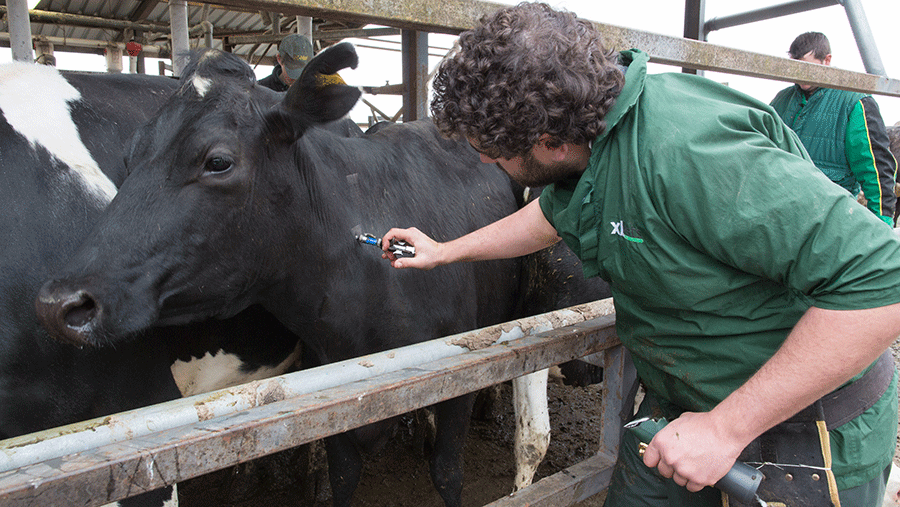Breakthrough in quest for TB cattle vaccine
 © Tim Scrivener
© Tim Scrivener Scientists say they have made a breakthrough which could be a crucial step in the introduction of cattle TB vaccine programmes.
Researchers have developed two candidate skin tests for cattle which they say can distinguish between animals that are infected with bovine TB and those that have been vaccinated against the disease with the BCG vaccine.
At present, the vaccination of cattle against bovine TB is forbidden under international and EU law because it is not possible to distinguish between a Bacille Calmette-Guérin- (BCG) vaccinated and TB-infected cow.
See also: 5 ways to improve TB control in the UK
The next stage is to evaluate these tests in field trials to a level conforming to World Organisation for Animal Health (OIE) standards. If all goes well, the test could be available to use in five years – depending on the appetite for policy makers to use the test.
Further, regulatory issues including demonstrating their safety and effectiveness will also have to be addressed before the diagnostic tools can be allowed to be used as part of TB eradication programmes. Such studies are already under way in the UK and India.
The tests have been established by teams headed by Professor Glyn Hewinson and Professor Martin Vordermeier, of Aberystwyth University, while working at the government’s Animal and Plant Health Agency.
They were created by an international team of scientists from Ethiopia, India, the Netherlands, United Kingdom and USA.
Prof Hewinson said the development of so-called “DIVA tests” – diagnostic tests to Differentiate Infected from Vaccinated Animals – is a potential major breakthrough.
Separate TB cattle
This is because a DIVA test working alongside a cattle vaccine could allow farmers to separate TB-positive animals from uninfected animals in the field.
Prof Hewinson said: “It would be wonderful if either of these tests succeeds in bringing about significant improvements in the control of bovine TB globally.
“Such a development would represent the culmination of a great deal of work by dedicated and talented scientists from around the world, and a significant step forward in our efforts to control this disease.”
Prof Vordermeier said development of these DIVA tests is a “crucial step” in the implementation of cattle TB vaccine programmes.
“Without such tests, traditional test and slaughter control strategies could not be pursued alongside vaccination, nor could vaccine efficacy and disease prevalence be effectively monitored in vaccinated animals in countries where such control strategies are unaffordable or societally not acceptable.”
